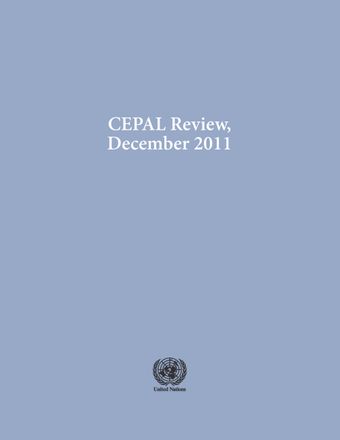-
The dynamics of industrial energy consumption in Latin America and their implications for sustainable development
- Source: CEPAL Review, Volume 2011, Issue 105, Dec 2011, p. 7 - 35
- Spanish
-
- 31 Dec 2011
- Previous Article
- Table of Contents
- Next Article
Abstract
This article analyses the relationship between energy consumption in industry and industrial productivity and the implications of this for sustainable development. To this end, it presents a matrix characterizing economies as: (i) converging or diverging in terms of energy consumption per unit of value added, and (ii) catching up with or falling further behind the productivity level of the international frontier (the United States). On the basis of data from the industrial surveys of four Latin American countries (Brazil, Chile, Colombia and Mexico), it concludes that the region’s evident specialization in natural resource-intensive sectors has contributed to a pattern of high energy consumption and slow productivity growth, and that while there is no productive convergence, there is evidence of energy sustainability in three of the four countries analysed.





